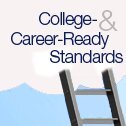To help counselors and educators better serve the growing Latino population in their buildings, a new report shares best practices from successful high schools in hopes of getting more students on the path to college.
The Arlington, Va.-based National Association for College Admission Counseling and Excelencia in Education, a Washington-based organization that advocates for Latinos in higher education, conducted a national survey and observed counseling practices at six high schools that were effective in supporting underrpresented populations to come up with suggested strategies.

Among the recommendations for high schools In a new report, “College Counseling for Latino and Underrepresented Students,” released in April:
• Begin college planning in 9th grade to allow students and families time for academic and financial planning;
• Promote a college-going culture throughout the school, including cultural fluency for Latino students, and provide outreach materials in Spanish.
• Offer college-planning activities for both students and families, including comprehensive financial aid counseling.
• Commit adequate resources to hiring and training school counselors to serve Latino students. Focus on personal contact and one-on-one or small group activities as much as possible.
• Raise the visibility of services and offer students the chance to meet with college representatives at school, as well as campus visit opportunities.
• Partner with colleges that serve large numbers of Latino students and inform students about the support services provided.
“Well-known barriers, such as lack of school/personnel resources, limited cultural fluency, and challenges related to family involvement, prevent intensive college counseling for many Latino students,” according to the report. “A college-going culture and positive attitudes on the part of school counselors are critical contextual factors in supporting individual involvement with Latino students and their families.”
Many Latino students are first-generation college students and rely on school counselors for guidance in the search and application process. Research shows that students are more likely to pursue four-year degrees when high schools make college counseling a priority and emphasize individualized counseling, the report notes.